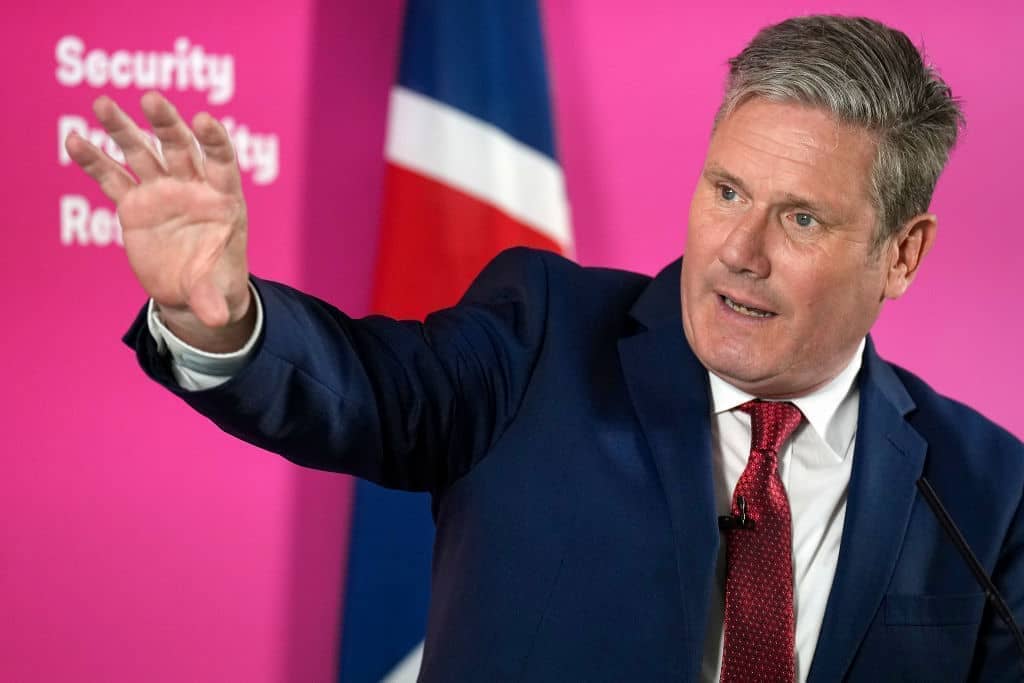Keir Starmer is today attempting to get back on the front foot over the cost-of-living crisis. Over the past fortnight, the Labour leader has been keeping a low profile (including a holiday abroad) which has given space to former prime minister Gordon Brown and Liberal Democrat leader Ed Davey to fill the vacuum in his absence. The policy Starmer has unveiled this morning isn’t so different to what both Brown and Davey talked about when it comes to helping consumers with rising energy bills: freezing the energy price cap.
Starmer is proposing a £29 billion plan ahead of the scheduled energy price cap rise in October, which is currently forecast to hit £3,582 a year. He wants to freeze it at its current rate of £1,971 – funding it through an extension of the windfall tax (backdating the start date to January) as well as measures including a cancellation of the £400 energy rebate. The proposal polls well with a YouGov/Times poll finding three in four Conservative voters back the energy plan. However, there are questions over how long it would need to be in place if energy prices stay high for the foreseeable and whether it is too broad given the subsidies would apply to everyone including the highest earners. As the IFS’s Paul Johnson puts it: ‘If this goes on for a very long time you cannot protect everyone all of the time’.
The policy has been drawn up with the shadow chancellor Rachel Reeves, who worked with Starmer on the original windfall tax, along with Ed Miliband. In that case the Labour leadership enjoyed a political victory over the Tories. After the Conservatives criticised the idea for months they eventually relented and adopted it themselves – leading to upset among some Tory MPs. Will that happen here? It’s not impossible – but it seems unlikely.
With Liz Truss the favourite to enter No. 10 next month, it’s worth noting that both she and her most likely pick for chancellor – Kwasi Kwarteng – are opposed to windfall taxes and weren’t particularly happy about the original one, let alone extending it. When figures in the Treasury last week floated the idea of strengthening the windfall tax, a source close to Truss told Coffee House: ‘This is Treasury officials freelancing’ as new taxes ‘would make it harder to attract new oil and gas investors and prevent new sources of energy emerging’. MPs who are supportive of both Truss and Sunak have also been quick to suggest Starmer’s plan is un-conservative. Truss has been clear that her priority is tax cuts which means that even if she wanted to she has less space for manoeuvre when it comes to spending.







Comments